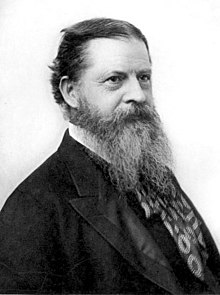
I recently discussed here the Peircean idea of 'abduction.' But I did so in a frankly polemical context, criticizing shoddy work by another writer who got the idea wrong or, rather, who did not get it at all but who failed to realize his loss.
Leaving such caviling aside, let me make an observation about the need for the idea. .
The idea arose because Peirce considered standard accounts of logic in his own day to be viciously circular. They relied on induction on the one hand and deduction on the other. Deduction has to give us the premises that make induction possible, and induction has to give us the premises that make deduction possible.
Take the famous syllogism about Socrates. All men are mortal; Socrates is a man; therefore, Socrates is mortal. The obvious problem here is that unless I know that Socrates is mortal, I don't know that all men are mortal. If exceptions are possible, then Socrates could be one of them. If I'm presuming that exceptions are not possible -- what have I accomplished by laying this out? Presumptions, as Bertrand Russell once said, are to proof what theft is to honest labor. [Or he said something like that -- I'm too lazy to look it up.]
Let us suppose that "Socrates" is our contemporary, living among us, and we are trying to decide whether he will die.
We intuitively want to say something like this: all men who were born more than 120 years ago have died. That gives us a copious database whence to draw a generalization. All men are mortal. Further, Socrates has all the characteristics that we need to classify him under the heading "man." Thus, both the major premise and the minor premise are empirical facts. Thus, from the conjunction of them, we get the conclusion, "Socrates is mortal."
But we've got a hidden premise here, "nature is uniform." Or, in temporal terms, "nature is constant." Anything that has been true of "all men" up until now will continue to be true of all men. How do we get that conclusion? Observation? No All observation will tell us is that in some respects nature is uniform and in other respects it is not. Europe based zoologists were for a long time perfectly justified in the belief that "all swans are white." They held that belief, rationally, until explorers came back from Australia with reports of black swans. Oops.
These considerations led Peirce to believe that induction and deduction alone could never escape from circularity. Induction offers generalities, deduction derives particulars, which in turn are used to build up the generalities, which lead us back down tot he particulars. Abduction was his solution to that problem -- a sort of logic that can stand on its own (leaving the other two as simply ways to illustrate or formalize what abductions allow us to know). As Peirce once wrote:
Looking out my window this lovely spring morning, I see an azalea in full bloom. No, no! I don't see that; though that is the only way I can describe what I see. That is a proposition, a sentence, a fact; but what I perceive is not proposition, sentence, fact, but only an image, which I make intelligible in part by means of a statement of fact. This statement is abstract; but what I see is concrete. I perform an abduction when I so much as express in a sentence anything I see. The truth is that the whole fabric of our knowledge is one matted felt of pure hypothesis confirmed and refined by induction. Not the smallest advance can be made in knowledge beyond the stage of vacant staring, without making an abduction at every step.
That's why one can't punt on this.
Comments
Post a Comment